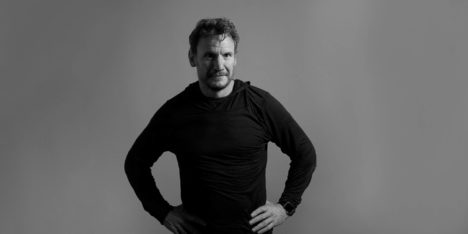‘The internet has won’: Nick Law on crap creative, storytelling and knowing your limitations
R/GA global vice chairman Nick Law is one of the most respected creative forces in advertising. Mumbrella sat down with the Australian to discuss crap work, collaboration, the problems with marketers and knowing your limits.
For the past 15 years Australian Nick Law has been one of the trendsetters in the global creative industry, no small feat for a man hailing from Sydney’s Northern Beaches.
 In that time he helped R/GA New York develop as one of the first agencies to truly understand how the internet would transform the way people are interacting with communications, and reshape storytelling.
In that time he helped R/GA New York develop as one of the first agencies to truly understand how the internet would transform the way people are interacting with communications, and reshape storytelling.
From its roots as a pure play digital agency R/GA has become what some might call a ‘full service’ creative agency, creating acclaimed, award-winning and, most importantly, effective campaigns for massive clients like Samsung, Nike, Johnson & Johnson and Google; including full-blown TV ads.


Largely waffle. from the very start [quote] “no small feat for a man hailing from Sydney’s Northern Beaches.” [unquote] Whatever that was intended to mean, to the assurance that [quote] “It’s a very different thing because then the devices you use, the craft and storytelling are very different from what they would have been 20 years ago” [unquote]
Story telling is many thousands of years old, and data and creativity cannot be described as “poles apart” since we all know what data is and nobody knows what creativity is, but only when it is completed, and even that point is very difficult to identify.
Is a bible story too old fashioned? Is Shakespeare irrelevant?
Creativity is possible under a wide range of circumstances, but it is best suited to the advertising world as a collaborative exercise. No matter how you apply it, creativity cannot be defined, it can only be realised. The type of media is unimportant. (yes I just said that) Radio is perhaps the most dependable and the most intellectual medium, followed by print (which unfortunately has shot itself in the feet) and then followed by Film, TV and the other audio visual media. Story telling and good creativity are essential to good advertising, and yes, in spite of the best efforts of many talented people, much of what we experience, especially on TV today, is dreck.
Totally agree with Nick that it’s not data vs creativity and it’s not film vs interaction – it’s everything. People can’t seem to help but think in a binary way.
However there’s a bit of spin there about ‘the internet won’ when the point he’s actually making is that ‘film’ is becoming dominant on the internet. Even when ‘digital’ people concede film is important they make it sound like the opposite.